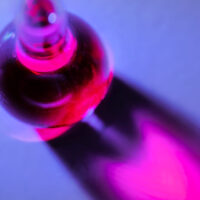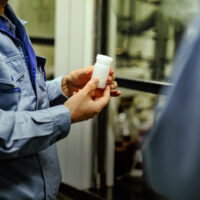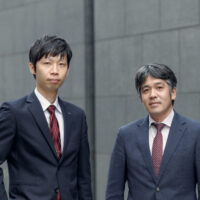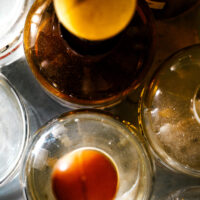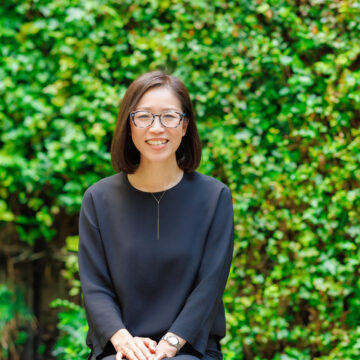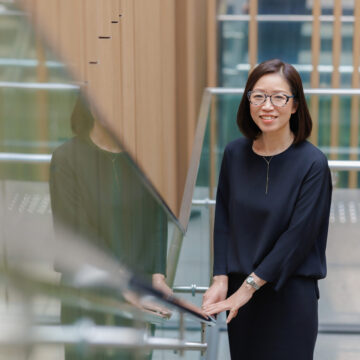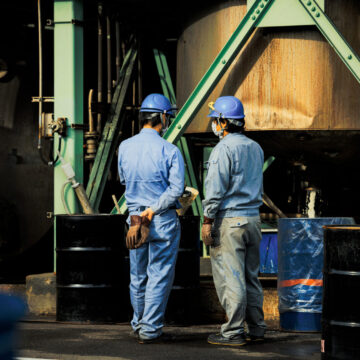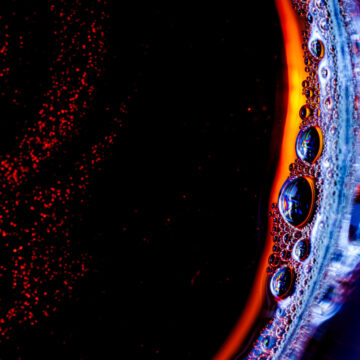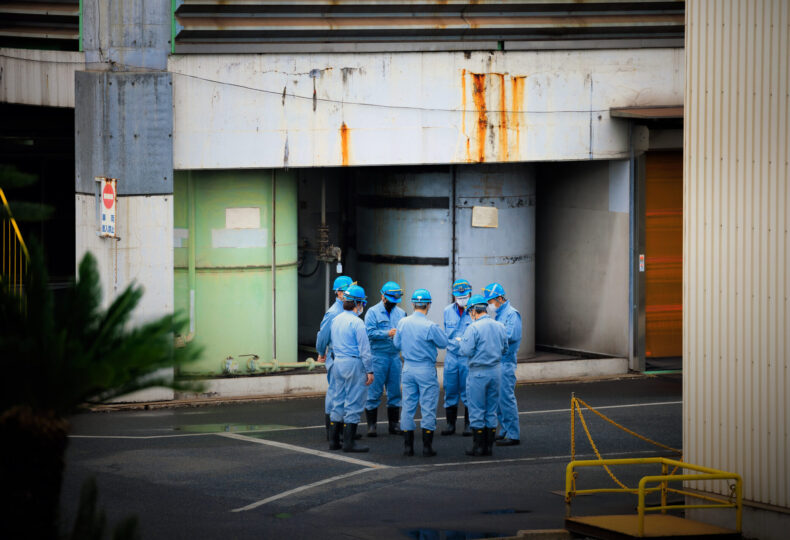
Expanding “high-quality, low-cost” beyond active pharmaceutical ingredients/Marketing strategies to bring MANAC’s DAIB to the world
“Your DAIB is of very high quality, but it’s pricey.” Such was the feedback that started MANAC on a journey toward revamping its DAIB manufacturing method.
The process involved resolving an issue concerning the drying method used for large-scale manufacturing as well as receiving approval through a client factory evaluation. With these hurdles cleared, MANAC is now finally ready to market its new high-quality, low-cost DAIB.
The next step is embarking on marketing activities with an aim to expand sales of the new DAIB. We spoke with Go Tanaka and Fumio Kodoi, in charge of DAIB sales domestically in Japan and overseas, respectively, to learn more about marketing plans going forward, thoughts on expanding sales, and markets that hold potential for DAIB.
contents
First and foremost, marketing to pharmaceutical manufacturers
“As you might expect, we will start by targeting pharmaceutical manufacturers,” explains Mr. Tanaka more emphatically.
In active pharmaceutical ingredient (API) manufacturing processes, oxidants are sometimes used to bring about oxidation reactions. DAIB has been drawing attention as an oxidant for such applications. But with so many other oxidants out there, why would DAIB be the oxidant of choice?
The answer may lie in the fact that many traditional oxidants contain heavy metals such as lead, mercury, and thallium. In turn, such traditional oxidants are toxic and considered unsuitable for synthesizing APIs since a high level of safety is required.
Conversely, in addition to the organic compound DAIB exhibiting similar reactivity to traditional heavy-metal-based oxidants, it also has low toxicity and is environmentally friendly as an oxidant, making it perfect for API manufacturing. Mr. Tanaka describes that with the growing interest in green chemistry (environmentally friendly synthetic chemistry), many pharmaceutical manufacturers are likely seeking to replace their standard metal-based oxidants with DAIB.
“I am confident that our new high-quality, low-cost DAIB is a very attractive oxidant for pharmaceutical manufacturers. We welcome anyone interested in MANAC’s DAIB to contact us.”
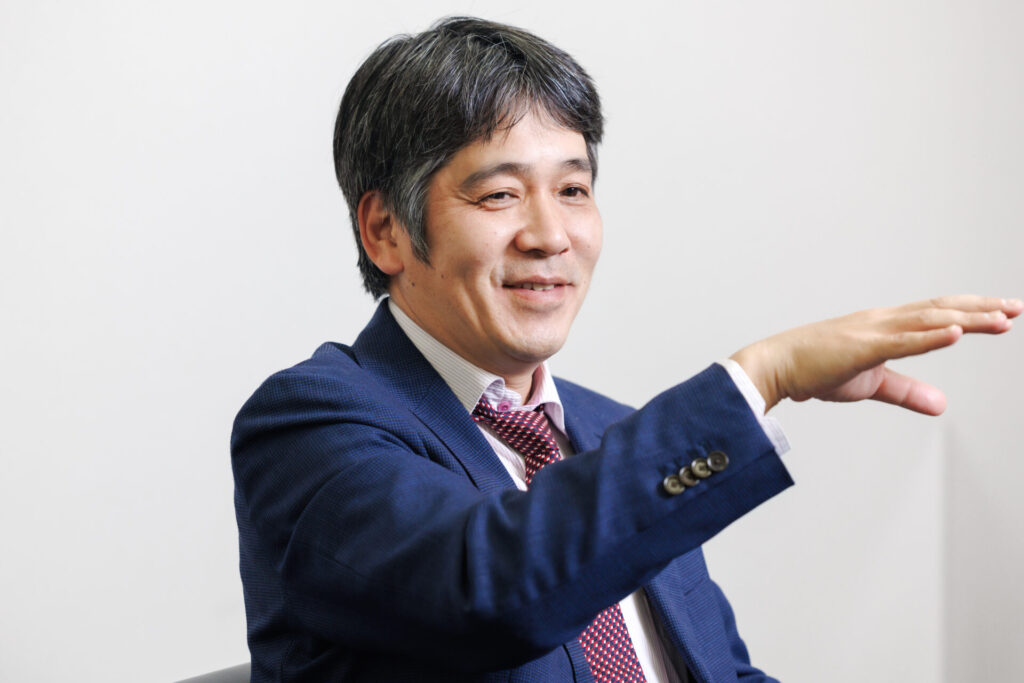
Overcoming challenging times and aiming for overseas growth
MANAC’s market pursuits for DAIB are not limited to the domestic Japanese market, and work has already begun toward expanding DAIB sales abroad. The key player in these efforts is Mr. Kodoi of the Overseas Business Development Department, who makes business trips overseas on a monthly basis.
Mr. Kodoi explains further. “DAIB will surely be in great demand outside of Japan, too. With its robust pharmaceutical industry, Europe is at the very top of our list of markets we aim to approach. Our initiatives toward this include participating in overseas exhibitions with our own booths as well as introducing our DAIB to overseas clients who use other MANAC products. By doing so, we hope to have as many overseas companies as possible find out about MANAC’s high-quality, low-cost DAIB. Companies outside Japan are highly aware of SDGs, so our ability to recycle byproducts should be another strong point of appeal.”
A major driving force behind Mr. Kodoi’s eagerness to expand DAIB marketing overseas is the past experience of being unable to sell DAIB outside Japan despite firm aspirations.
“There was actually a time when DAIB was sold as a wet product, as in a non-dried product, due to safety issues. DAIB as a wet product has a much lower risk of explosion compared to DAIB as a dry product. However, as a wet product, the quality of DAIB is unstable and may deteriorate during long shipping periods. This, among other factors, made the sale of DAIB outside Japan unfeasible at the time. It was a rather harsh reality to accept.”
For Mr. Kodoi, news of the creation of a new DAIB through MANAC’s enhanced manufacturing method was nothing short of miraculous. In addition to being able to offer DAIB as a dry product, it could also be sold at a significantly lower price than before. Mr. Kodoi describes how thrilling it was for the new arrival, which meant he could confidently market DAIB overseas.
“I am determined to fully apply my sales expertise to connect companies worldwide with our new DAIB. It is truly an amazing product. There is no doubt in my mind that it will also be a hit with overseas companies.”
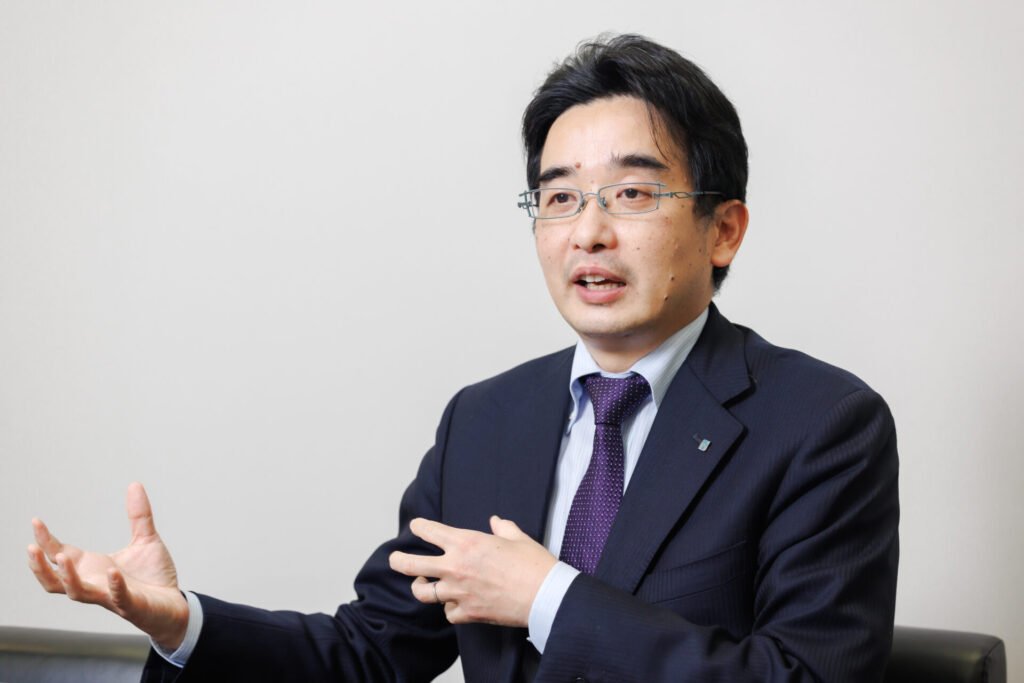
Working to realize the potential of DAIB in many fields beyond pharmaceuticals
On the topic of DAIB, which enjoys strong demand as an oxidant in the pharmaceuticals field, Mr. Tanaka emphasizes that “there are major advantages to switching from traditional metal-based oxidants to DAIB in other industries as well.” Indeed, the great number of issues that currently plague oxidation reactions clearly illustrate this point.
“In the realm of manufacturing processes for chemical substances, oxidation reactions have been dubbed the ‘number one reaction to avoid.’ This is because metal-based oxidants are highly damaging to the environment and because there are cases where remnant metals in the reaction product cause malfunctions for the product user. For example, when metal-based oxidants are used to synthesize electronic materials, any metals that remain in the final materials may result in electric circuit defects. Because of these issues, manufacturers have been known to deliberately choose inefficient synthesis pathways in order to avoid using oxidation reactions.”
According to Mr. Tanaka, using DAIB could significantly change the status quo surrounding oxidation reactions.
“Using DAIB as an oxidant makes it possible to synthesize safe, metal-free reaction products. Instead of the usual avoidance, manufacturers can now actively embrace oxidation reactions as a tool that can contribute toward shortening reaction pathways and reducing costs. DAIB is simply an outstanding reagent that makes oxidation reactions easier to use.”
From APIs and semiconductor materials to electronic materials used in cell phones, such as for OLEDs and LCDs, DAIB applications are expected to span an incredibly extensive range of fields. Seeking to contribute to the advancement of all types of industries, MANAC will continue to strive in its manufacturing and marketing of DAIB.


